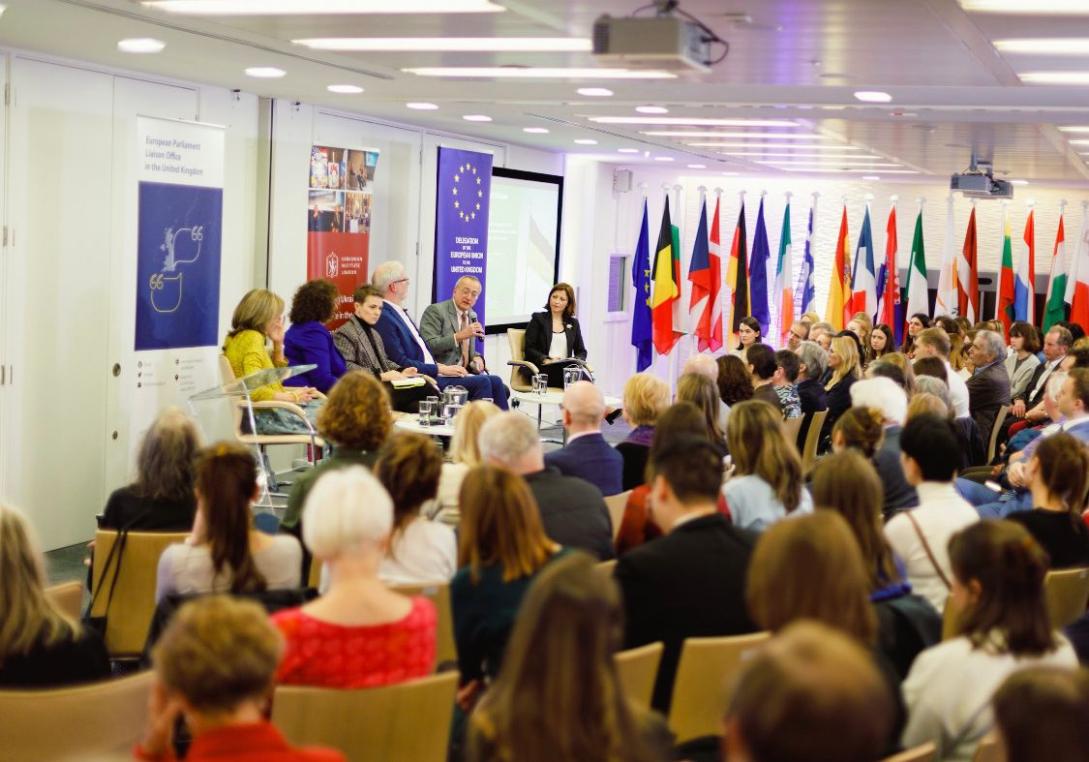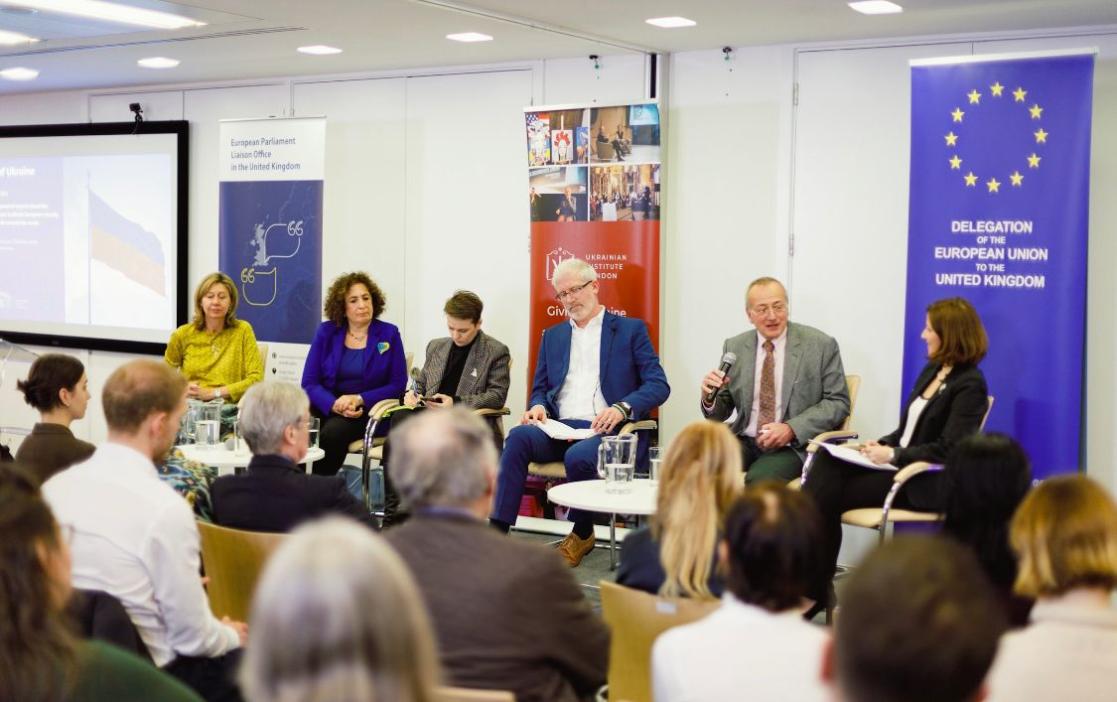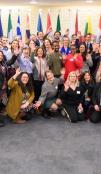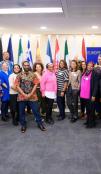Panel of experts discuss the future of Ukraine at Europe House in London

The panellists discussed developments in Ukraine’s ongoing defence of its statehood, assessed implications for European security and global democratic processes and explored the role we collectively play in shaping the outcomes of the war. The panel saw five distinguished speakers in conversation. These included: Rory Finnin, University Associate Professor of Ukrainian Studies at the University of Cambridge, Nataliya Gumenyuk, Ukrainian journalist and author specialising in foreign affairs and conflict reporting, Christina Lamb OBE, Chief Foreign Correspondent at The Sunday Times, Dame Melinda Simmons, British Ambassador to Ukraine until September 2023 and the host Pedro Serrano, the EU Ambassador to the United Kingdom.
The panel was moderated by Olesya Khromeychuk, Director of the Ukrainian Institute London.
In her opening statement, Susanne Oberhauser, Head of the European Parliament Liaison Office in London, emphasised the unprecedented level of unity within the EU in the face of Russia’s war of aggression in Ukraine. She, and also the panellists, underlined that there are no signs of war fatigue in Ukraine, nor elsewhere in Europe and that the support for Ukraine remains steadfast. Continued support is crucially important for Ukraine since “it takes more than just talk to achieve peace”, said Chargé d’affaires a.i. Eduard Fesko from the Ukrainian Embassy in his welcoming speech.
Ambassador Pedro Serrano offered an overview of how the EU has supported Ukraine in the past years. Mr Serrano underscored how, after Russia began its war of aggression against Ukraine in February 2022, the EU responded in an extraordinary manner, providing €28 billion of military support and almost €90 billion overall support. On top of that, the Ambassador reminded that the EU Member States have trained over 40,000 Ukrainian soldiers. Moreover, the European defence industry has increased its production capacity by 40% since Russia’s full-scale invasion. Finally, the Ambassador reminded all how last February 2d, the EU Member States agreed on another €50 billion package to Ukraine. “The war in Ukraine has constituted a change of paradigm in European security, but there is still work to be done, especially in ramping up European capacity in defence industry”, the Ambassador concluded.
As in any conflict, also in Ukraine women play a diverse role in the war efforts. Dame Melinda Simmons discussed her experiences in meeting women who have survived war crimes, such as rape and other forms of violence, and emphasised that even though there are ongoing investigations into such crimes in Ukraine, the stories of women are not sufficiently told. Additionally, the lack of women in politics raises questions about the post-war Ukrainian society: How can women better participate in politics, the economy and in rebuilding of the society?
Nataliya Gumenyuk, too, discussed the importance of documenting and investigating war crimes in Ukraine. The Reckoning Project, that Gumenyuk manages, trains conflict journalists and researchers to record, collect, and conserve witness statements in a way to preserve their integrity for use in a court of law. In her comments, Gumenyuk highlighted the importance of accountability and prosecuting those who have committed war crimes.
While the war in Ukraine continues, there are several other conflicts and wars waged around the world. Christina Lamb discussed the so-called “competition” for media attention and said that it is becoming more challenging to find new ways to report on the events in Ukraine and maintain interest in the war. Still, she said that there is a lot of interest among readers and no signs of war fatigue.
Finally, rounding up the discussion, Rory Finnin discussed the role that Crimea plays in the war. He argued that the importance of Crimea is not sufficiently reflected in the mainstream European media, which often repeats outdated assumptions about the peninsula. Finnin encouraged Europeans to learn more about Crimea and Ukraine as a whole and study its language and culture to better understand what is at stake in the war.
As repeated throughout the panel, Europe has a responsibility to support Ukraine in its fight for freedom and democracy. As EU Commission President Ursula von der Leyen said in her speech at the European Parliament Plenary on 6 February, “Ukraine has proven the power of a nation and a people fighting for something. For themselves first and foremost. But also for us and for everything that we believe in. Our freedoms, our democracy, our hard-fought rights and aspirations”





